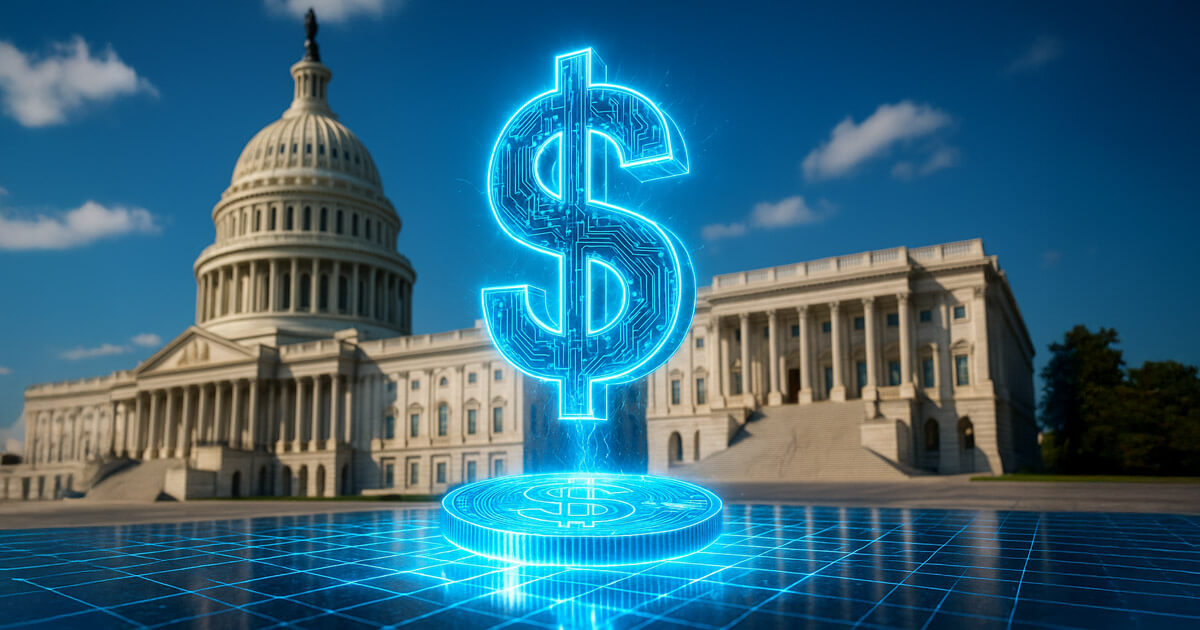Senate Republicans have accelerated efforts to bring the first comprehensive federal stablecoin legislation, the GENIUS stablecoin bill, to a floor vote before the Memorial Day recess.
Senate Majority Leader John Thune formally moved to expedite consideration of the Guiding and Establishing National Innovation for U.S. Stablecoins (GENIUS) Act this week, setting up a potential chamber-wide decision as early as May 20.
The legislative maneuver raises the stakes in Washington’s long-running debate over stablecoins, positioning the bill as a critical marker in the United States’ digital asset policy.
The GENIUS Act, which passed the Senate Banking Committee in March by an 18-6 bipartisan margin, would establish a framework for payment stablecoins. It would mandate 1:1 backing with cash or Treasuries and require monthly attestations.
It would also place large issuers under Federal Reserve oversight while preserving state-level pathways for smaller players.
Supporters of the bill
The bill’s supporters, led by Senators Bill Hagerty, Cynthia Lummis, and Tim Scott, argue that it is necessary to preserve dollar primacy and bring crypto activity under clearer regulatory standards.
“I look forward to passing the GENIUS Act in short order to keep digital-asset innovation in America, protect customers, and make sure foreign companies are playing by the same rules,” Hagerty stated.
The bill is positioned to respond to the rapid growth of stablecoins as a driver for urgent legislation. The total stablecoin capitalization now exceeds $241 billion, with industry leaders Tether and Circle accounting for the vast majority.
Backers argue that providing legal clarity will ensure these dollar-linked tokens continue to anchor global crypto markets while supporting U.S. debt demand through mandated reserve holdings.
Opposition has quickly mounted from both progressive Democrats and influential banking groups.
Opposition to the bill
Senator Elizabeth Warren, who has emerged as the bill’s highest-profile critic, warned that the framework could “green-light big-tech companies and other conglomerates to issue their own stablecoins.”
A coalition of more than 20 community banking organizations echoed these concerns in a letter last month, arguing that the proposal risks displacing traditional deposits and exposing the financial system to new vulnerabilities.
The path forward remains uncertain. Despite controlling the Senate, Republicans need at least seven Democratic votes to reach the 60-vote threshold required to advance the bill.
While the measure cleared the committee with bipartisan backing, Democrats remain divided. Lawmakers such as Kirsten Gillibrand and Mark Warner, who have signaled openness to stablecoin legislation in the past, will likely play decisive roles.
GENIUS Stablecoin Act next steps
Even if the GENIUS Act clears the Senate, differences with the House version could push final negotiations deep into the summer. The House Financial Services Committee has advanced a parallel bill with more stringent disclosure requirements, and reconciliation between the chambers may prove difficult.
Federal Reserve officials have offered measured support for stablecoin oversight, with Governor Christopher Waller previously stating that both banks and non-banks should be able to issue regulated tokens.
As Senate leaders prepare for a critical vote later this month, the debate reflects broader tensions over the future of digital money.
Republicans are positioning the bill as a means to secure U.S. monetary influence and deliver on President Donald Trump’s call to “keep digital-dollar innovation onshore.” Meanwhile, opponents continue to warn of potential risks posed by privatized forms of digital cash.
The Senate’s decision on the GENIUS stablecoin bill the coming weeks will mark a pivotal moment in stablecoin regulation, testing lawmakers’ ability to bridge partisan and industry divides in pursuit of a national framework.
The post Senate looks to push through GENIUS stablecoin bill before end of May appeared first on CryptoSlate.
Senate Republicans have accelerated efforts to bring the first comprehensive federal stablecoin legislation, the GENIUS stablecoin bill, to a floor vote before the Memorial Day recess. Senate Majority Leader John Thune formally moved to expedite consideration of the Guiding and Establishing National Innovation for U.S. Stablecoins (GENIUS) Act this week, setting up a potential chamber-wide
The post Senate looks to push through GENIUS stablecoin bill before end of May appeared first on CryptoSlate. Regulation, Stablecoins CryptoSlate



















































































































